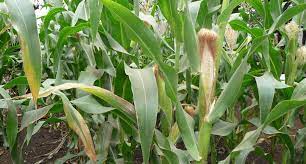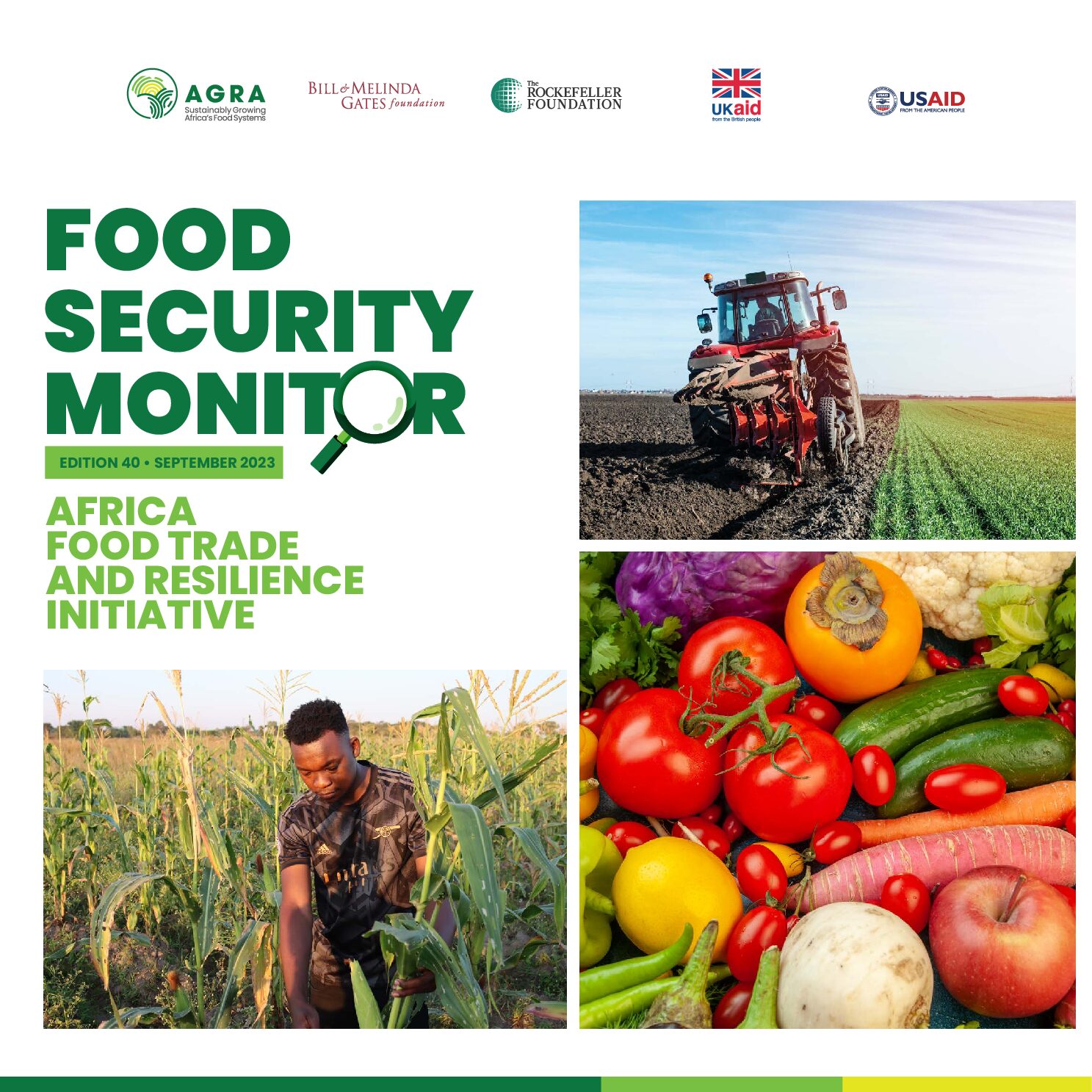AGRF 2023: Tanzanian Minister of Agriculture, Hon. Bashe, Promises 5,000 Acres of Land to Poultry Entrepreneur Elizabeth Swai for Feed Production
By Elizabeth Shumbusho
A groundbreaking announcement emerged from the Africa Food Systems Summit 2023 in Tanzania as Hon Hussein Bashe, the Minister of Agriculture, pledged 5,000 acres of land to a poultry entrepreneur, Elizabeth Swai, the Managing Director of AKM Glitters Co Limited. This promise comes as a game-changer in the country’s efforts to bolster its poultry sector and address the critical challenge of animal feed supply.
In a conversation that captivated the audience, Elizabeth Swai introduced her company, AKM Glitters Co Limited, and outlined their profound work in poultry farming and rural development. She emphasized the need for support to scale up their transformative initiatives.
Swai’s plea to address the feed production challenges resonated with the Minister of Agriculture. “Last year, we met in Kigali, and I pleaded with the investors to invest in the production of maize and soy for animal feeds,” Swai explained. She highlighted her significant investment in a feed mill but lamented the lack of a stable maize supply.
In response, Minister Bashe acknowledged the pressing issue of competition between human and animal feed. He underscored the importance of securing raw materials and fostering a sustainable approach in the feed industry. “It’s true that there is human and animal feed competition,” Minister Bashe remarked. “If you are developing a feed mill in any sustainable way to make your business resistant to the competition, you must develop an infrastructure or a plan.”
Minister Bashe then extended a groundbreaking offer to Elizabeth Swai: “I’ll give you land so that you can start producing your own maize. Let’s have forward contracts, sign agreements, and ensure a steady supply of maize for your feed mill.”
This commitment by the Minister of Agriculture to allocate 5,000 acres of land to Elizabeth Swai and AKM Glitters Co Limited opens up new avenues for poultry feed production. It signifies a vital step in addressing the challenge of animal feed supply while promoting sustainable agricultural practices.
This announcement at the AGRF Summit 2023 showcases the power of collaboration between the government and private sector to revolutionize Tanzania’s poultry sector and strengthen its position in the global agricultural landscape.
Both Swai and Minister Bashe engaged in a candid conversation, addressing critical issues surrounding agriculture, youth engagement, feed production, and the environment.
Swai began her address by highlighting the significant impact of her company’s work in Tanzania. She proudly stated, “We are integrated into the poultry business and rural development. We have reached approximately 1.2 million smallholder farmers in the poultry sector, empowering them through our incubation centers.” Swai passionately emphasized how the youth, after staying in these centers for six months, had managed to generate profits ranging from 8 to 10 million Tanzanian Shillings in a group.
With an eye on scaling up this transformative project, Swai turned her attention to feed production, an issue that has long plagued the poultry industry in Tanzania. She recounted her investment of 3 billion Tanzanian Shillings in a feed mill but expressed the profound challenge of obtaining a consistent supply of maize. In response to her plea for maize supply, Minister Bashe offered a game-changing solution. He extended a generous offer of 5,000 acres of land to Swai to kickstart her maize production. The Minister’s commitment was met with resounding applause, as it symbolized a significant step towards self-sufficiency in maize production for animal feeds.
Minister Bashe further elaborated on the importance of developing a sustainable infrastructure for feed mills. He stressed the necessity of securing raw materials from reliable sources, urging investors to plan for a minimum of 20-30 percent self-sufficiency. The Minister also issued a challenge to landowners who acquire vast, fertile land but do not use it, offering them an opportunity to collaborate in maize production.
Moreover, Minister Bashe emphasized the need for transparent contracts and forward agreements with the government to ensure maize supply during seasons. This move would alleviate the financial burden on investors, as the government could aggregate and store maize efficiently.
Discussing environmental sustainability, Minister Bashe referred to an agreement signed with a Saudi Arabian company, SALIC, offering them 5,000 acres of land to produce Alpha Alpha. Notably, the Minister underscored the importance of catering to local markets, ensuring that 50% of the produce remains within Tanzania.
On the topic of formalization and data accuracy, the Minister acknowledged the challenges in the agricultural sector. He expressed the need for accurate farmer registration, citing issues with subsidy schemes that arise from inaccurate data.
What Elizabeth Swai, Managing Director of AKM Glitters Co Limited, said
I am the Managing Director of a company called AKM Glitters Co Limited, and we are involved in the poultry business and rural development. I have two topics to address today. The first one is not exactly a question; I would like to present this to Honorable Mwigulu regarding finance.
We are currently working with the youth and women in Tanzania. So far, we have successfully reached approximately 1.2 million smallholder farmers in the poultry sector. We have established incubation centers for the youth. In these incubation centers, young people stay for six months and generate profits ranging from 8 million to 10 million per group.
We are now looking to scale up this initiative, which translates to financial needs. We are eager to partner with the government to expand this project across all regions of Tanzania, including the islands. We have seven regions on the islands and 26 regions in Tanzania. Honorable, we earnestly request your support in scaling up this project, as it will greatly benefit numerous people, especially the youth, by helping them grow profitable poultry businesses.
Secondly, I would like to address the issue of feed production, directed towards Honorable Bashe. Last year, we had a meeting in Kigali, during which I appealed to investors to consider investing in the production of maize and soybean for animal feeds. I personally invested 3 billion in a plant for this purpose, but we have been facing a shortage of maize. A few months ago, we made a request to our minister to communicate our need for maize for our feed milling investment, but unfortunately, we have not received any response to date.
We plead with you, Honorable Bashe, for assistance in obtaining maize. While maize is primarily for human consumption, it is essential for animal nutrition and the production of additional protein for human consumption. We require food for our animals, and we extend an invitation to all investors interested in agriculture to invest in maize and soybean production. We are a ready market, and our investments are prepared to purchase your products.
Honorable Hussein Bashe, Minister of Agriculture, Response
It’s true that there is competition between human and animal feed. This is indeed a reality, but let me respond to my colleague. It’s high time now, with Honorable Mwigulu here and financial institutions present, to address the importance of broadening our financing models, business strategies, and engaging other investors to adapt to the evolving competitive landscape in the markets.
When developing a sustainable feed mill operation, especially to withstand market competition, it’s crucial to establish an infrastructure or a plan that ensures a steady supply of raw materials, ideally sourced from within, accounting for at least 20-30% of your requirements. Setting up a facility worth 3 billion Tanzanian Shillings without securing backward linkages poses a significant challenge. I invite you to my office, and I’ll provide you with land to start producing your maize. I offer you 5 free hectares. My only condition is this, and I want to challenge Tanzanian investors: Many companies own vast fertile lands in our country but do not utilize them. Instead, they often use such lands as collateral for financing other trading activities. On the other hand, if you wish to purchase maize from the Ministry of Agriculture’s National Food Reserve or the CPB, please approach us ahead of the season with a contract, forward contracts. We can sign agreements, fix prices, and establish payment terms.
One challenge we face in our Tanzanian trade culture is the habit of waiting for prices to fall before making a move. For investors, aggregating 20,000 metric tons can be expensive, as it involves bank interest and overhead costs. However, the government can manage this efficiently. For instance, we are currently aggregating over 20,000 metric tons from Rwanda’s government. So, if you have a clear plan, like the one mentioned last year when circumstances were challenging, where Ulega requested a specific quantity of maize, let’s plan ahead. Anyone needing maize for animal feed, come now, let’s make a contract for the upcoming farming season, and we will aggregate the maize to provide you with the necessary assurance.
Secondly, I believe the previous speaker may be from the islands. On the environmental aspect, we recently concluded a deal with a Saudi company called SALIC. We granted them 5,000 acres of free land to produce Alpha Alpha. However, since I am also a livestock keeper, I asked them about their market. They mentioned exporting, which generates foreign exchange. In response, we are entering into an MOU with them to ensure that 50% of what they produce remains in the local market, benefiting our livestock keepers. Let’s focus on the real business here.
When it comes to financing, the government is making considerable efforts. We are working on digitizing farmer registration, having started with the registration of farmers. We aim to profile 7 million farmers, and we are already halfway there, with approximately 3.5 million farmers registered. Addressing the issue of inaccurate statistics, as mentioned by our friend from SUGECO, is vital. When subsidy schemes are in place, accurate information is critical. If you claim to have only two acres but actually have ten, this can lead to issues when determining subsidies. It’s essential to report accurate data. We are working on tax collection through TRA.
Formalizing the informal sector has not been a common practice in our culture, but global dynamics are now pushing us toward formalization. As a livestock keeper myself, I understand the challenges. Even though I had difficulties initially, I had to adopt a formal approach.
Regarding global changes, where humans compete with animals for feed, there are substantial opportunities for investment. When considering livestock farming, it’s wise to start by asking where your animal feed will come from. We have seen a young man mention that he has 4,000 bells on the coast, and I, as a farmer in Nzega, wonder how much it would cost to transport those bells from the coast to my location. In contrast, if we examine the profitability, a maize farmer may need to sell tons of maize to earn a million, while a livestock keeper can achieve the same in three months by providing proper feed. The return on investment in the livestock sector is higher than in the crop sector. It’s easier to turn a profit in livestock, provided livestock keepers are ready to make the necessary investments.
So, if you are interested in investing in the yellow maize sub-sector, let’s sit down and discuss the details. I have land, labor is available, and the timing is right. If you want me to produce four tons per hectare, we need to talk about the capital expenditure and who will support infrastructure development. It’s not just about signing a contract to buy maize; it’s about the long-term commitment. No one will invest in production without a long-term contract. I won’t accept a situation where I’m just given seeds, and the investor expects me to handle everything, from irrigation to farm preparation, without any support. I must see a genuine commitment.
On the climate issue, the real problem is financing. Financial institutions are present, and I recently discussed the allocation of agricultural portfolios by the World Bank to Africa compared to First World countries in Asia. We need to consider the cost of financing for our agricultural sector. The world talks about environmental protection but often overlooks poverty alleviation. If a farmer works for three months and then remains idle for eight months, the nearest source of income might be cutting down trees for charcoal. We need to ask where the money for sustainability and environmental protection will come from.



Wanderfull article. Am a small farmer who interesting in larger scale sgrubusiness. How can I get a virtue opportunity to get free land from ministry of agriculture? Thank you